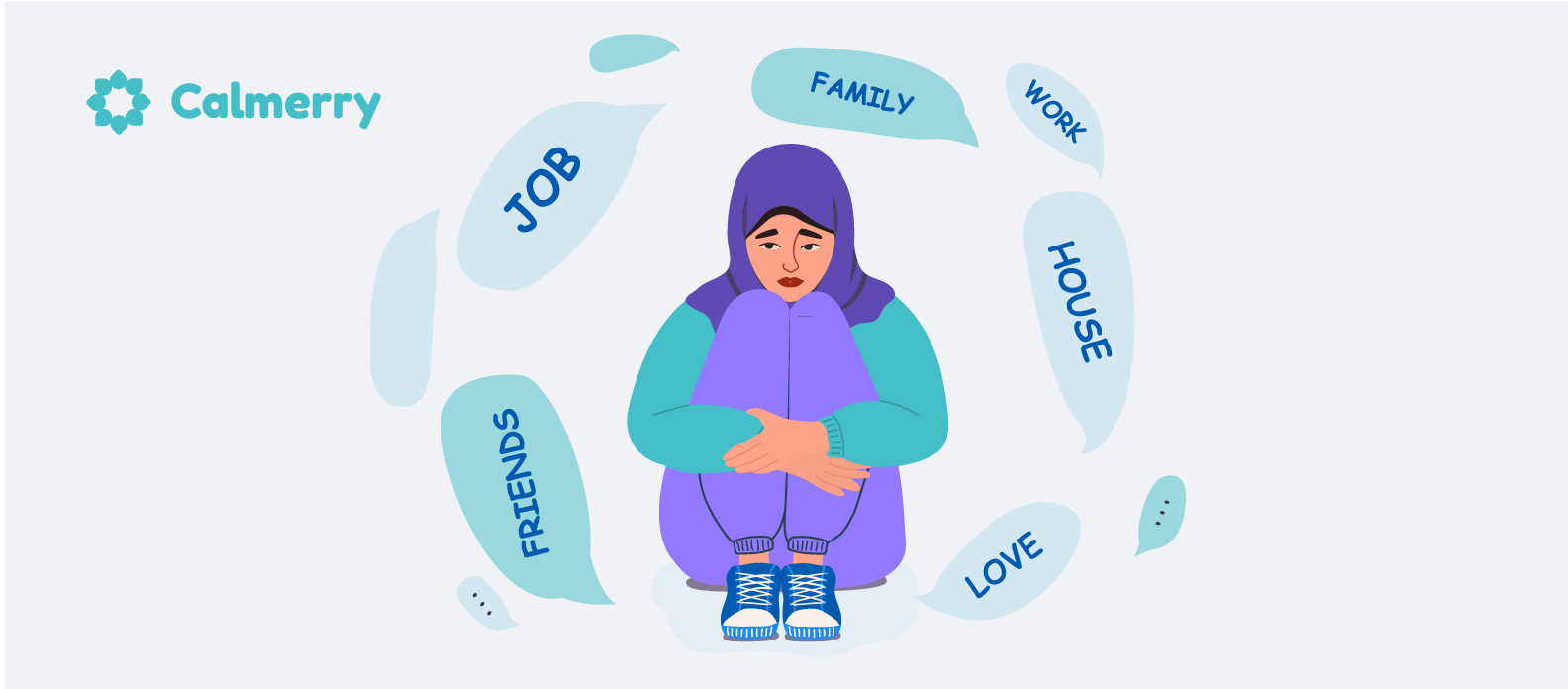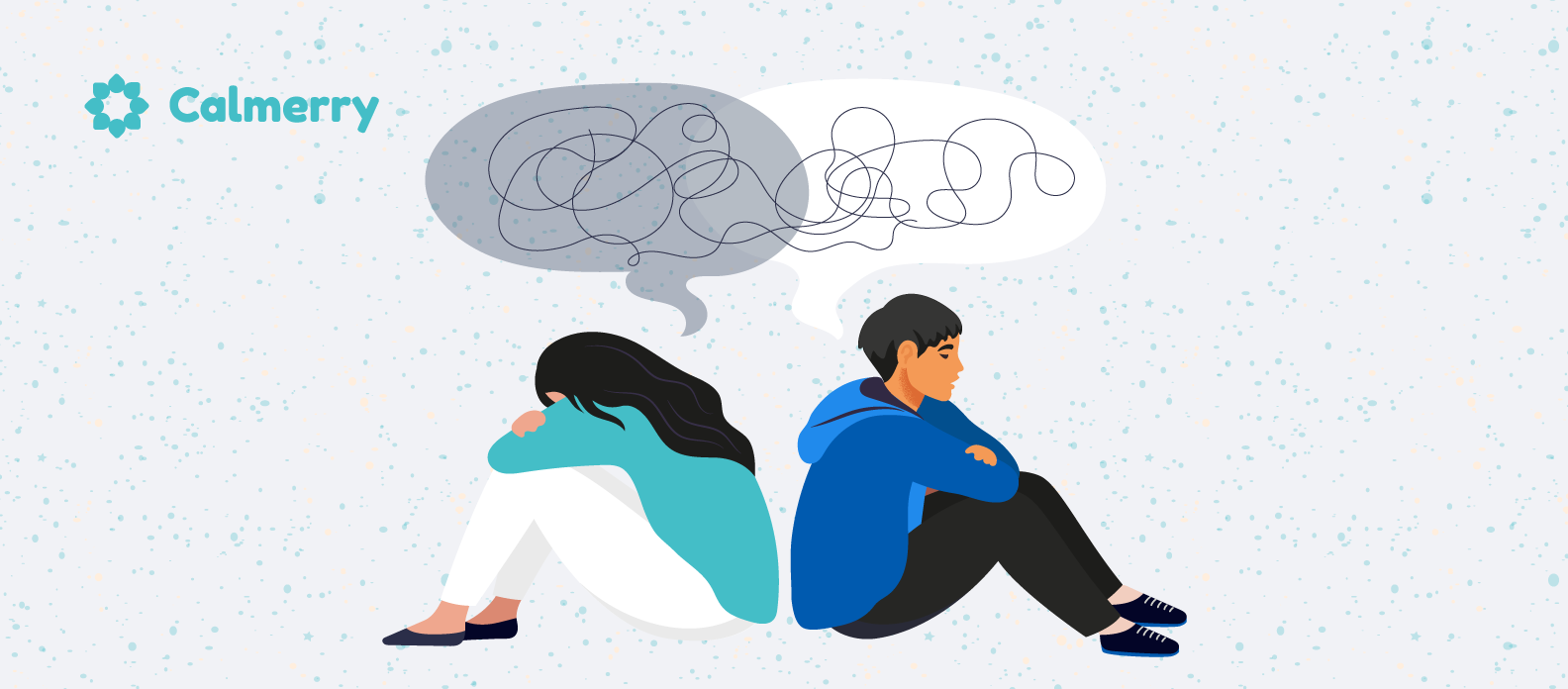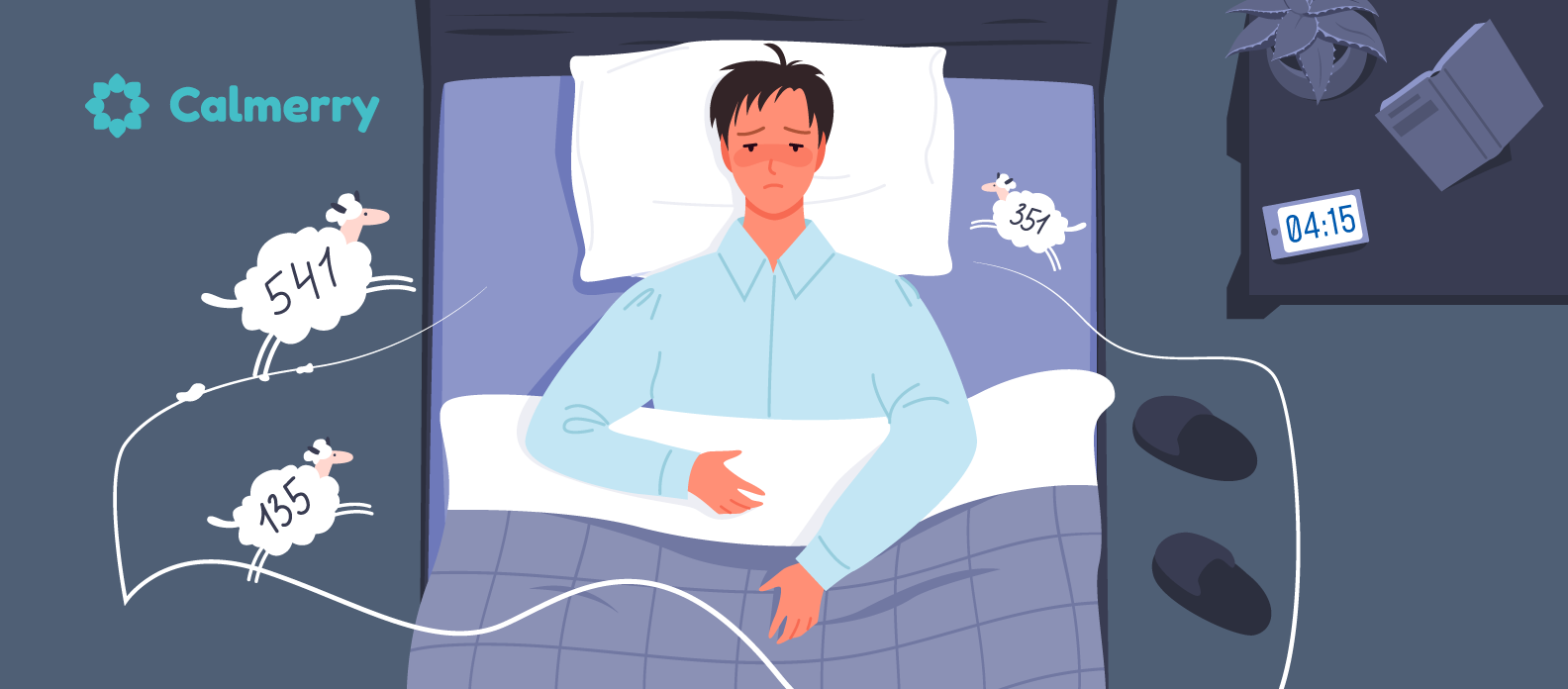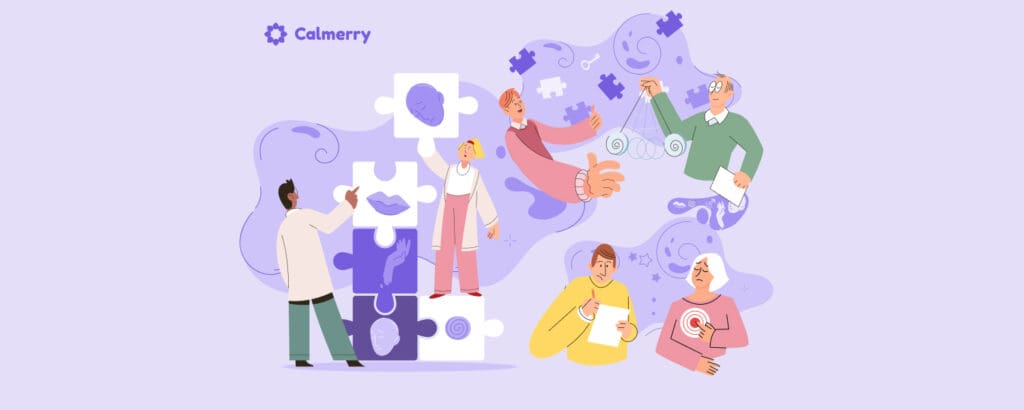Do I Need Therapy? 15 Signs It’s Time to See a Therapist

In this article
Many people think that something must be seriously wrong with you to see a therapist. That is one of the common misconceptions about therapy. In fact, therapy is an incredibly useful tool that is worth trying even if you don’t have a medical problem.
So, how do I know when I need to see a therapist?
The truth is, you should never let things get to the breaking point before seeking help. Although therapists can help you through a crisis, their support is much more effective when you seek it promptly.
Therapy as the first step towards mental wellness
When you are having a hard time but pretending to be fine, you are making things even worse. Hiding your pain digs you deeper into a hole that you will struggle to get out of.
It’s just reasonable to think of therapy as a mental wellness check. While you exercise, eat well, and take care of your physical health, you should do the same for your mind.
Therapy is a great avenue for checking whether your mind is coping well with the challenges of everyday life. If you feel something is not right, take notice of it and take the necessary steps to improve it.
It’s crucial to pay attention to your mental well-being and ask for help when you feel some emotional distress. It’s not a weakness but a necessary step toward the path of self-care.
The sooner you take that step and see a therapist, the faster you’ll feel better.
How do I know if I need a therapist?
There is nothing to be ashamed of in thinking you need therapy. Below are signs to be aware of that may indicate the need to seek out support.
1. You’re feeling overwhelmed
You can feel overwhelmed when dealing with intense emotions that are hard to manage. Such emotions can be caused by stress, trauma, or relationship issues.
Concealing our true emotions and hiding feelings is the common cultural norm. It works for the short term and may bring certain benefits, but is not sustainable. At some point, the pent-up emotions may blow up.
If you frequently experience strong outbursts of emotions, you might need help. That is especially true if you can’t stop crying, experience fits of anger, or feel numb and detached from yourself and those around you.
Therapy can help you learn about what you are feeling and why and provide tools to manage it.

2. You have medical symptoms that tests don’t explain
Your mind, body, and emotions are all interconnected. Mental health issues affect the central nervous system, and it, in turn, impacts all other health systems, such as the immune, endocrine, gastrointestinal, and cardiovascular. [1] Chu, B., Marwaha, K., Sanvictores, T., Awosika, A. O., & Ayers, D. (2024, May 7). Physiology, stress reaction. StatPearls – NCBI Bookshelf. https://www.ncbi.nlm.nih.gov/books/NBK541120/
When you keep feeling unwell and have medically unexplained symptoms without getting a clear diagnosis, it might be a sign of some psychological issues.
For example, stress, anxiety, and depression have been linked to lower immunity, body pains, digestive issues, persistent fatigue, and disrupted sleep.
So, you should take physical symptoms as a warning and talk to a counselor.
3. You’re using substances to cope
When we are under emotional or mental stress, we may turn to things that are distracting or rewarding. We do it because we think alcohol, cigarettes, or drugs can help us cope and feel better again. However, it’s a bad idea.
Substance use can help alleviate such negative feelings as anxiety and hopelessness in the short term. But in the longer run, it will make the situation worse and even lead to abuse or dependence.
So, if you start drinking more than you used to and can’t feel good without it, it becomes a problem. It means you don’t have the right coping skills to manage everyday pressure. You risk adding another disorder to your existing problems.
When you cannot relax and feel better without relying on alcohol and other substances when you have a bad day, it is time to consult a mental health professional.
Therapy can help you effectively manage what you are going through.
4. You’re not performing effectively at work
Depression can make it hard for you to focus on daily activities. You may feel disconnected from your job even if it used to make you happy.
Other mental health conditions can also interfere with your concentration, memory, and attention and make you less productive. Negative thoughts can distract you, and you can feel unmotivated.
If you are experiencing memory loss, indecisiveness, apathy, and similar symptoms, it may be a sign of emotional or psychological issues, so you should consider therapy.
A therapist can help you learn to self-regulate your behavior and manage stress by using effective relaxation and problem-solving strategies.

5. You’re listless and don’t care about anything
When you are listless and uninspired, you feel disconnected from life and no longer get excited about anything. You lose interest in all the things that fascinated you before and don’t feel pleasure.
Listless depression is quite common. People who suffer from it lose all enthusiasm and energy and don’t want to do anything needing effort.
If you realize that you don’t enjoy things that you typically did and your favorite pastimes aren’t exciting anymore, you should find out why.
A therapist can help you understand what is holding you back and get rid of negative thoughts to start enjoying life again.
6. Loved ones are getting concerned about you

The people around you might notice your change of mood and attitude, which are hard to see from the inside. Your family members and friends might express their concerns to you.
The primitive part of our brain is wired to avoid things that create discomfort or pain, but you should take your friends’ concerns seriously.
If you believe that your family and friends are well-intended in their concerns, then seeking professional help may very well be what is indicated.
7. You’re avoiding other people
Some people are introverts by nature, and little time alone is also good for you when you need to think things over and do whatever you want. But if you actively avoid other people, it can be a sign of depression or anxiety.
People experiencing psychological stress tend to pull away from their friends and family.

If you feel that you withdraw from your friends and distance yourself from your partners, and you would rather spend time alone, it is a red flag. It is not normal to isolate yourself and refuse others’ company all the time because all people need social stimulation.
Isolation will only make your negative feelings and thoughts worse, so it would be greatly beneficial to talk to a therapist privately about your issues.
8. You’re following negative behavior patterns
You don’t like your job but are afraid to apply for a new position because you imagine that the new job might be even worse?
Are you always comparing yourself to other people and setting unreasonably high standards for yourself?
Are you telling yourself that you are not smart enough or not handsome enough?
These are negative patterns that you follow subconsciously, and they prevent you from using opportunities, ruin your self-confidence, and make you feel unhappy.
That is a sign of deeper psychological issues. You could have some ingrained patterns that you have learned in your childhood, and they prevent you from reaching your goals.
A therapist can help you identify and deal with the root cause of your behavior, develop a positive mindset, and apply behavioral strategies that will help reinforce new ways of thinking and challenge any faulty patterns of thinking.
9. You’re struggling to build relationships with others
People who are struggling with emotional and psychological issues may have difficulties in building relationships and communicating their feelings to loved ones.
If you can’t maintain a healthy relationship or are always arguing with your partner, you might be a good candidate for couples or family therapy. It can help you improve your communication skills and have fulfilling relationships with your family.

Your relationship issues might be connected to some psychological trauma. Our relationships reflect our past, so it is common to recreate some dynamics similar to those we witnessed while growing up.
So, talking to a counselor can help bring awareness to these dynamics and heal past wounds to create better relationships.
10. You sleep too much or too little
Sleep is a reliable indicator of wellness because sleep and mental health go hand in hand. When your mind is at peace, you will have healthy sleep patterns.
If you suddenly have a hard time falling or staying asleep, there might be a deeper emotional or mental issue.

A common misconception is that insomnia refers to the inability to fall asleep at night. This condition also manifests as frequent night waking, waking up very early, and being unable to fall asleep.
If your insomnia continues for weeks, it can be a sign of serious problems caused by stress, anxiety, or depression. Sleep problems are also common for people with bipolar disorder and ADHD.
A therapist will address the underlying problems and help you develop healthy sleeping patterns for life.
11. You’re eating more or less than usual
Changes in eating habits can be signs of mental health problems. People who struggle with mental health may be experiencing emotional eating when they eat for comfort to avoid difficult feelings, relieve stress, or soothe strong unpleasant emotions.
Such behavior may become problematic, triggering an unhealthy relationship with food, and lead to eating disorders, such as binge eating disorder and bulimia nervosa.
Therapy can help you develop healthy attitudes towards food and weight and change how you respond to difficult situations and stress.
12. You’re experiencing intense emotions or mood swings
If you find yourself frequently experiencing intense emotions such as anger, sadness, or anxiety that are difficult to manage, or if you have mood swings that disrupt your daily life, it might be beneficial to seek therapy.
These intense emotions can interfere with your ability to function effectively at work, maintain healthy relationships, and enjoy daily activities.
Therapy can help you identify the underlying causes of these emotional extremes, teach you coping strategies, and provide a safe space to process and manage your feelings.
This can lead to improved emotional regulation and a greater sense of stability in your life.
13. You’ve experienced trauma or a significant life change
If you’ve gone through a traumatic event or a significant life change, such as a loss, divorce, or a major transition, and are struggling to cope, therapy can provide support and strategies to help you navigate these challenges.
Trauma can have long-lasting effects on your mental and emotional well-being. Significant life changes can also bring about stress, uncertainty, and emotional upheaval.
A therapist can help you process your experiences, develop healthy coping mechanisms, and rebuild your sense of safety and normalcy.
This support can be crucial in helping you move forward and regain a sense of control over your life.
14. You’re grieving
When you lose someone you love, the sadness and pain can feel overwhelming. A therapist can help you work through these feelings and find ways to cope.
They provide a safe space to express your emotions and guide you through the healing process.
Feeling grief can also affect your daily life, making it hard to do normal activities, and a therapist can support you in managing these challenges.
15. You have thoughts of harming yourself
Thoughts of self-harm can happen for many reasons. Sometimes, people feel overwhelmed by their emotions, like sadness, anger, or frustration, and don’t know how to deal with these feelings.
Also, this feeling may appear due to socioeconomic disadvantage or mental health disorders like anxiety and depression. [2] Skegg, K. (2005). Self-harm. The Lancet, 366(9495), 1471–1483. https://doi.org/10.1016/s0140-6736(05)67600-3
Having thoughts of harming yourself can interfere with your daily life, making it hard to focus on work, school, or relationships. If you act on these thoughts, it can lead to serious injuries and long-term health issues.
It can also create a cycle where the feelings of guilt and shame make the original problems feel even worse.
A therapist can help you understand why you’re having these thoughts and teach you healthy ways to cope with your emotions.
Should I see a therapist? Exploring the benefits of therapy for everyone
In fact, you don’t need a certain sign or concern to go to therapy and benefit from it. People see therapists for many different reasons when they need to handle major life problems or even when they want to improve themselves as a person.
Every one of us could benefit from therapy to vent out, process concerns, gain awareness and insight as to barriers in our lives, and further develop adaptive coping strategies.
Remember: therapy doesn’t always have to be only about negative things.
You can use it as a judgment-free space where you can talk about whatever’s on your mind to set new life goals and boost motivation and self-confidence.
Therapy can be a place to work on setting healthy boundaries, establishing a better work-life balance, and learning to connect with others.
It can become a life-long journey that will help you learn to love yourself, navigate big life choices, and make your life happier and healthier.
A word for Calmerry
Today, online therapy services like Calmerry offer more choices and greater flexibility in how you can get help.
You can message your therapist from wherever you are when you’re having a bad day or just need to vent. Or you can schedule live video sessions to talk about the things that are bothering you and get emotional support and guidance to achieve your goals and change your life for the better.
Start with a brief survey – and we will match you with a therapist within 1 hour.
Chu, B., Marwaha, K., Sanvictores, T., Awosika, A. O., & Ayers, D. (2024, May 7). Physiology, stress reaction. StatPearls – NCBI Bookshelf. https://www.ncbi.nlm.nih.gov/books/NBK541120/
Skegg, K. (2005). Self-harm. The Lancet, 366(9495), 1471–1483. https://doi.org/10.1016/s0140-6736(05)67600-3
online therapy
live video session



